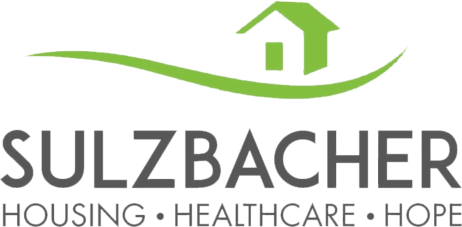Communication and Service
“I thought I would never be able to have a pretty smile again. Thank you so much,” are words I often hear in my office and around the dental clinic where I currently serve. Tucked away underneath several ramps to the interstate, the Sulzbacher Center provides comprehensive care to men, women, and children experiencing and at-risk of homelessness. Services range from street outreach and daily meals to case management, job placement assistance, and medical care. As a part of Sulzbacher, the dental clinic is one of the few locations providing dental services to people without dental insurance in Jacksonville. My role at the clinic is to help individuals who are uninsured and at-risk of or experiencing homelessness receive necessary  dental services.
dental services.
As I acclimated to my role at the clinic, I often found myself asking, “How can I help? What more can I do?” Luckily, I have a wealth of information through my fellow National Health Corps Florida AmeriCorps members and the Sulzbacher Center that I can use to help connect clients to the medical, behavioral, and housing services they need. In doing so, I realized that the population I serve is frequently unable to access or receive the care they need despite the abundance of resources within Jacksonville.
One of my clients, for instance, came in needing urgent dental care, but I quickly understood dental care was only the first of many services she needed. Listening to her story, I realized that although the pain in her mouth prompted her to seek medical care, her true cry for help was in finding resources to help her stop substance use. She was new to Jacksonville and unaware of the rehabilitation and treatment resources within the community. She also had a general distrust of facilities based on previous experiences. I immediately thought of Gateway Community Services, where some of my fellow AmeriCorps members are serving. I was able to connect her to resources that she would be able to use and was hopefully able to dispel some of the distrust she had towards the system. She left the office with a seemingly more optimistic outlook on receiving help as well as several phone numbers to call to become a patient at Gateway. Even though she received the information she needed, she is only one of many individuals who are not able to access the services they need because of a lack of communication. The frustration that comes from miscommunication and misunderstanding are unfortunately very pervasive and takes a lot of time to untangle.
This point was driven home this past month when the dental department, though not at fault, unfortunately had to withdraw from the Westside area of Jacksonville. For many patients in the area, the Sulzbacher Westside Dental Clinic was their only means to receive dental care. Not only were patients upset and frustrated, but the dental staff were also confused about having received different instructions on how to proceed with patient care on a daily basis. Although all of the individuals involved in the clinic were united in continuing to provide care for patients who need services at the Westside Dental Clinic, communicating this to patients proved to be an issue, especially during a time when plans were constantly changing. Some patients raised their voices, understandably, when they were informed that they would not be able to be seen at the Westside clinic and it was uncertain when or where they would next be seen. I was frustrated for some time at not being able to give patients the answers they sought regarding where and when  they would be able to seek care in the future. Even though I was able to offer solutions to some of their problems, the prospect of finding transportation to other clinics for care was daunting, to say the least.
they would be able to seek care in the future. Even though I was able to offer solutions to some of their problems, the prospect of finding transportation to other clinics for care was daunting, to say the least.
Now, having been a part of the transition process between dental clinics, I too understand the frustration that can come from a lack of communication. I wonder if there was a more effective, efficient way to convey the changes within the clinic to the patients. How can we open up the lines of communication so that information is properly relayed to those who need it most? I do not have the answers to these questions, and I believe these questions are not limited to the situation the Sulzbacher Dental Clinic faced. Rather, they extend to public health and service as a whole. It is crucial to listen to those we serve, to see beyond the exterior, to be able to connect, inform, and provide them with services they need. It is with these thoughts in mind that I start out every day. And it is the wide smiles, “Thank you’s” and “Bless your hearts” that bring joy and motivation to grow and serve the community.

This blog was authored by NHC Florida member Noriko Katagiri.
Noriko serves at Sulzbacher as a Patient Navigator.